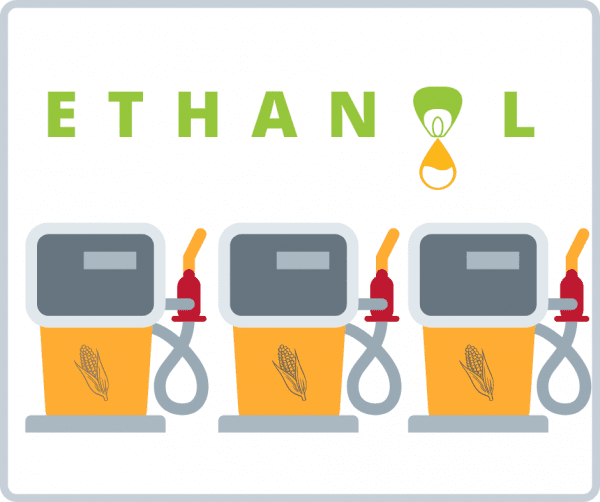Smacking Down Gas Prices

Farmers have a solution to high gas prices that’s here, renewable and better for the environment- ethanol. The fact is that the use of higher ethanol blends will cut gas prices and here’s why.
It’s clean, gives us more global independence, is renewable and affordable.
By displacing petroleum, increased ethanol use will enhance U.S. energy security while reducing emissions. Ethanol also significantly lowers carbon emissions and cleans the air. Updated analysis from the Department of Energy’s Argonne National Lab finds today’s ethanol results in up to 52% fewer greenhouse gas emissions than gasoline. Ethanol currently adds billions of gallons to our fuel supply every year, lowering demand for high-cost oil and less reliance on foreign oil.
Today regular gasoline without ethanol is often times priced at well over a $1.00 higher compared to fuel containing a minimum of E10. Higher blends of ethanol in a future high-octane fuel would allow consumers access to a high-octane fuel without the high-octane price premium we see today.
Ethanol Myths
Using ethanol takes away from feeding the world. FALSE
The majority of corn grown in Illinois is field or dent corn which is not the kind you eat at the kitchen table. Less than 1% of corn grown in Illinois is sweet corn. Despite the many current uses of corn, we consistently have a surplus of the crop left over every year that could be devoted to new future uses. In the latest World Agriculture Supply & Demand Estimates, there is an 11% surplus of corn after the demand for animal feed, DDGs, fuel ethanol and food & industrial are met.
It’ll hurt my engine. FALSE
E15 is safe for all post-2001 vehicles. It has been certified by the EPA for use in any gasoline-powered car with a U.S.-certified emissions system from 2001 or newer, whether it’s flex fuel or not. Ninety percent of all vehicles on the road today are 2001 or newer, so chances are that’s your vehicle.
Octane is a measurement of fuel’s ability to resist Octane (Anti-Knock Index - AKI) is the number you see at the gas pump today. Octane is a measurement of fuel’s ability to resist premature ignition. Consistent, controlled, and predictable ignition of fuel is required for optimal engine performance. Premature ignition can lead to engine knocking resulting in decreased performance, decreased efficiency, increased emissions, and potential engine damage if left untreated. Today’s engines are designed and optimized to operate within specific fuel octane ranges. However, future internal combustion engines (ICE) will require higher octane fuels to fully utilize new technology and deliver substantial gains in efficiency.
So why isn’t this already in place at the pump?
The majority of gas today already has a blend of 10% ethanol. IL Corn and National Corn Growers Association are working hard to get Next Generation Fuels Act passed allowing for higher blends and also have submitted correspondence to the Biden Administration urging them to act now and prevent consumers from losing access to a lower-cost fuel option on June 1.







